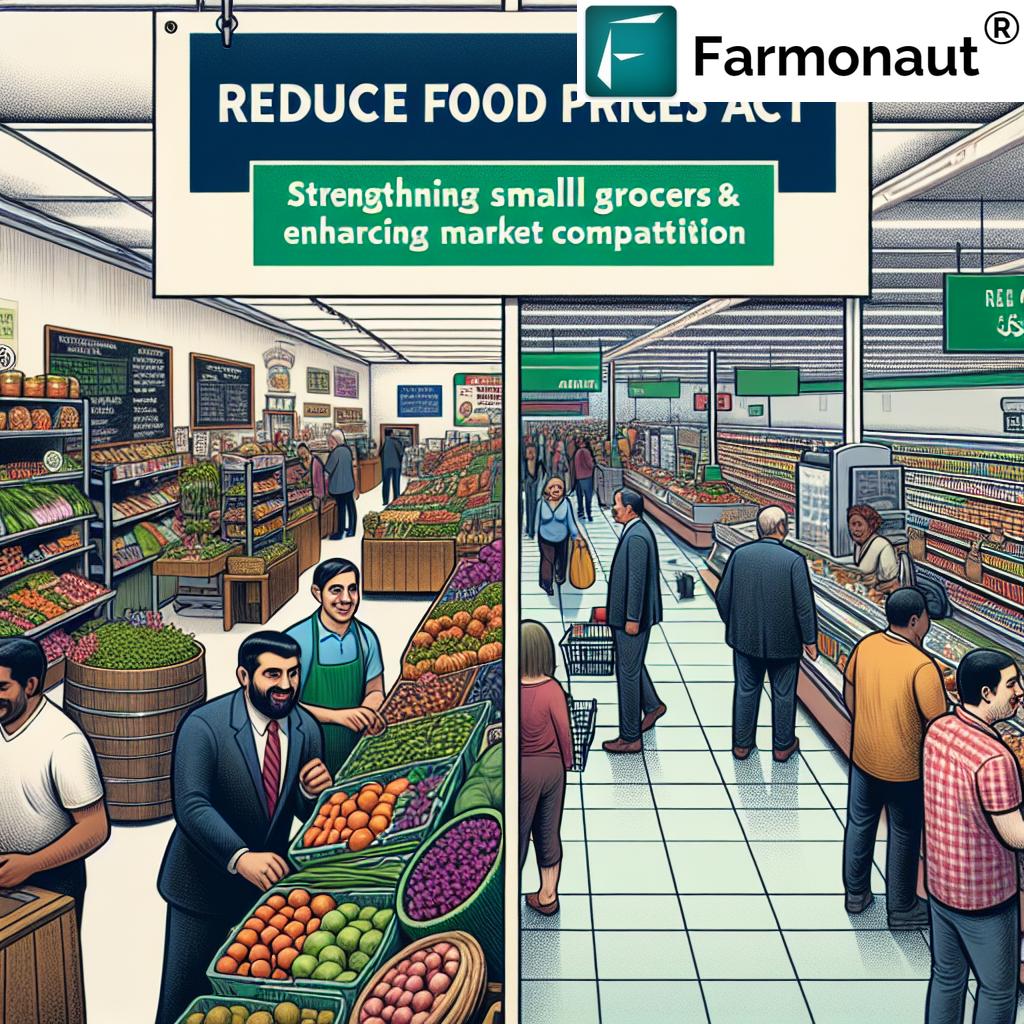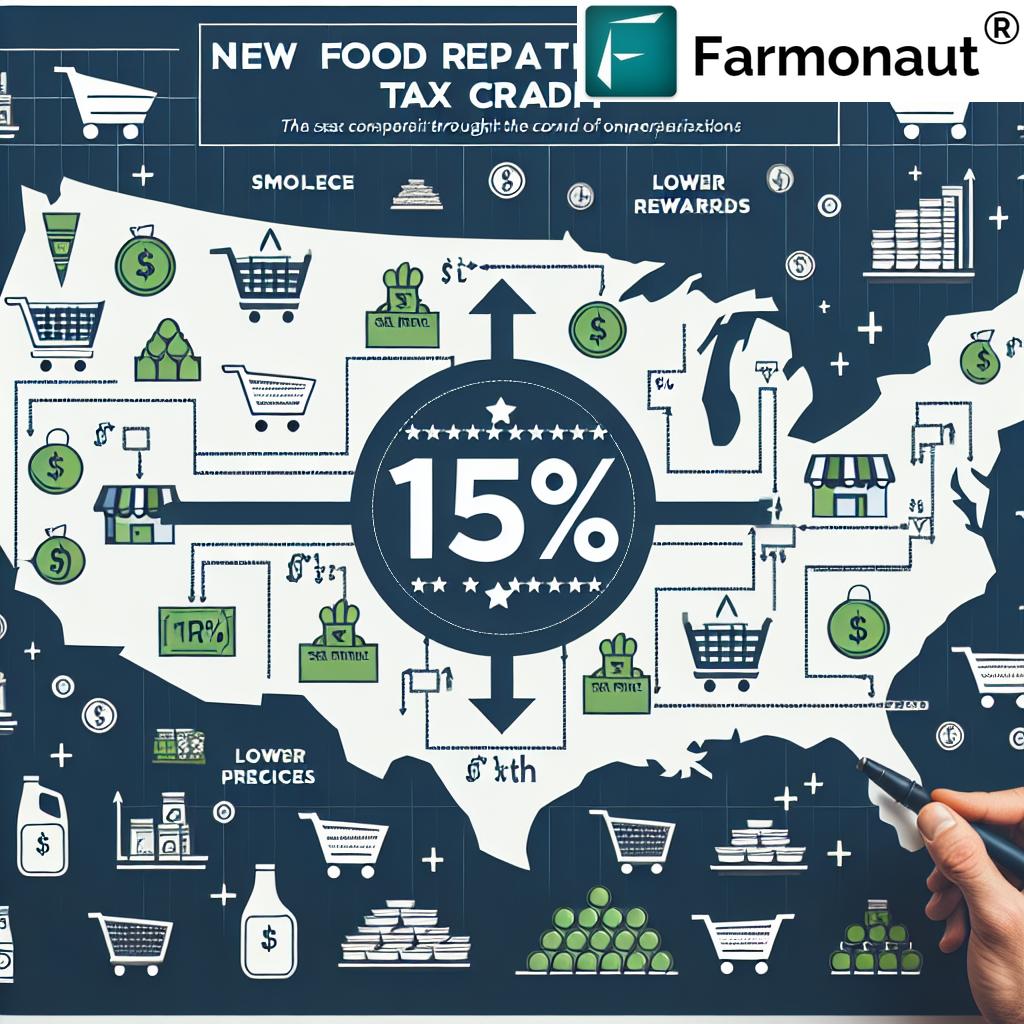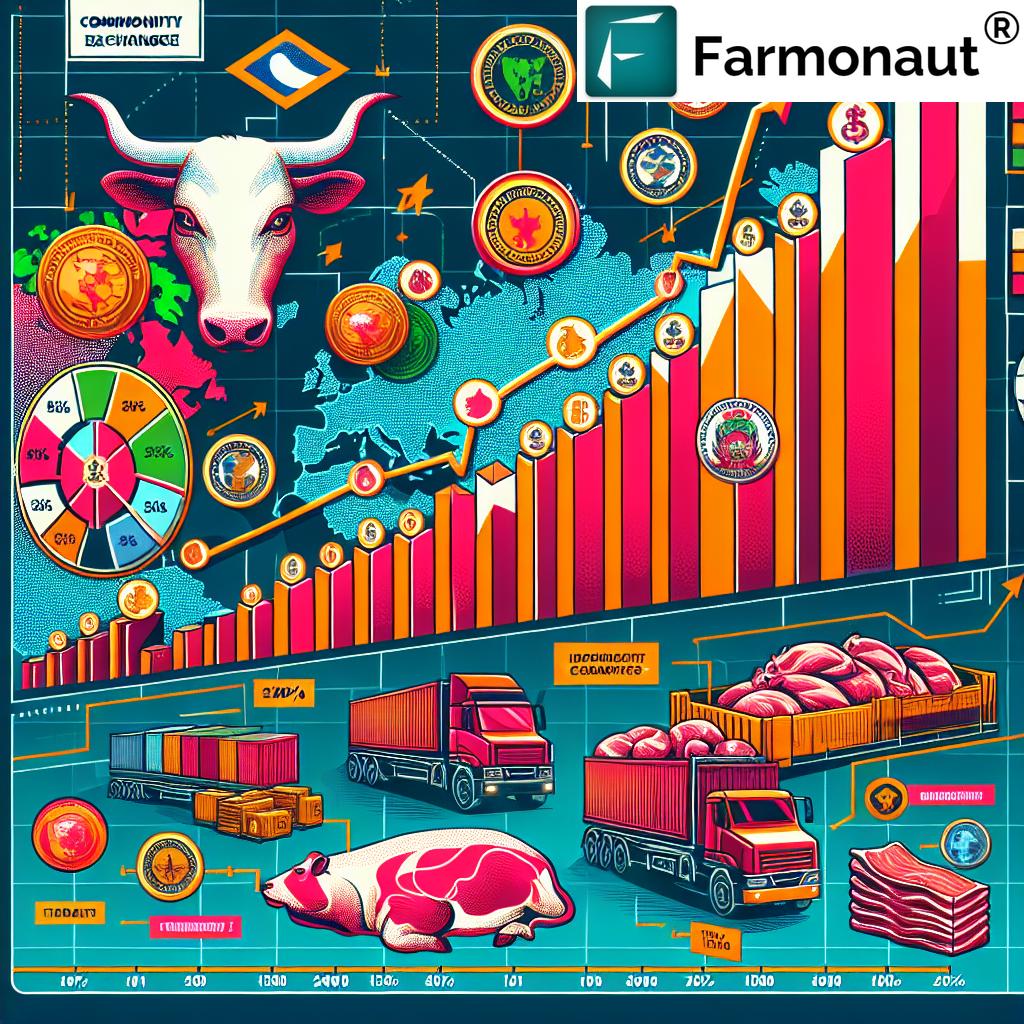Groundbreaking REDUCE Food Prices Act: New Jersey’s Bold Move to Slash Grocery Costs and Empower Small Retailers

In a groundbreaking move to address the rising cost of living, New Jersey has introduced the REDUCE Food Prices Act, a pioneering piece of New Jersey grocery legislation aimed at slashing grocery costs and empowering small retailers. This innovative approach to combating food price inflation has caught the attention of consumers and industry experts alike, offering a potential solution to a problem that has been weighing heavily on American households.
The REDUCE Food Prices Act: A Game-Changer for New Jersey Consumers
The New Jersey REDUCE Food Prices Act, proposed by Rep. Mikie Sherrill, is set to revolutionize the state’s grocery landscape. At its core, the legislation introduces tax incentives for small grocers, aiming to increase grocery market competition and ultimately lower grocery costs in New Jersey.
Key features of the Act include:
- The introduction of the New Food Retail Business Tax Credit
- A 15% credit on capital investments for new small food retailers in highly concentrated markets
- Measures to combat food retail concentration and promote diversity in the supermarket industry
This Rep. Mikie Sherrill food legislation comes at a crucial time when grocery price inflation has become a significant concern for voters across the state and the nation.
Tackling the Rising Cost of Groceries
The REDUCE Food Prices Act is a direct response to the alarming increase in grocery prices that has been affecting New Jersey families. Recent data shows that grocery prices have hit record highs, with many consumers struggling to afford basic necessities.
By introducing small grocer tax incentives, the Act aims to:
- Encourage new players to enter the market
- Increase competition in areas dominated by large chain stores
- Provide consumers with more choices and potentially lower prices
This approach to food price reduction is based on the economic principle that increased competition typically leads to better prices for consumers.
The New Food Retail Business Tax Credit: A Closer Look
At the heart of the REDUCE Food Prices Act is the New Food Retail Business Tax Credit. This innovative small food retailer tax credit offers a 15% credit on capital investments for new small food retailers entering highly concentrated markets.
Here’s how it works:
- New small grocers can claim a tax credit for investments in their business
- The credit applies to expenses such as store fixtures, equipment, and renovations
- The goal is to reduce the financial barrier to entry for new competitors in the grocery market
This tax credit is expected to stimulate growth in the small grocer sector, leading to increased competition and potentially lower prices for consumers.

Impact on the Supermarket Industry
The REDUCE Food Prices Act represents a significant shift in supermarket industry legislation. By focusing on small retailers, the Act aims to challenge the dominance of large chain stores and create a more diverse and competitive marketplace.
Expected impacts on the industry include:
- Increased opportunities for small and independent grocers
- Potential reshaping of the grocery landscape in New Jersey
- Pressure on larger chains to compete on price and quality
This legislation could serve as a model for other states looking to address similar issues in their grocery markets.
Addressing Consumer Concerns
The REDUCE Food Prices Act directly addresses several key concerns of New Jersey consumers:
- Affordability: By promoting competition, the Act aims to make groceries more affordable for families.
- Choice: Increased competition means more options for consumers in terms of where they shop and what products are available.
- Local Economy: Supporting small grocers can boost local economies and create jobs within communities.
These measures are designed to provide relief to consumers who have been struggling with the rising cost of groceries.
The Broader Context: Food Price Inflation and Market Concentration
The REDUCE Food Prices Act is being introduced against a backdrop of growing concern about grocery price inflation and market concentration in the food retail sector. Federal bodies have been scrutinizing these issues, and New Jersey’s legislation represents a proactive approach to addressing them at the state level.
Key factors driving this legislation include:
- Concerns about price gouging in highly concentrated markets
- The impact of inflation on household budgets
- The need for more diverse and resilient food supply chains
By tackling these issues head-on, New Jersey is positioning itself as a leader in consumer protection and market fairness.
Looking Ahead: Potential Outcomes and Challenges
While the REDUCE Food Prices Act offers promising solutions, its implementation and impact will be closely watched. Potential outcomes include:
- A more diverse and competitive grocery market in New Jersey
- Lower prices for consumers on everyday grocery items
- Increased opportunities for entrepreneurs in the food retail sector
However, challenges may arise, such as resistance from established large retailers and the need for effective monitoring to ensure the Act achieves its intended goals.
Conclusion: A Bold Step Towards Affordable Groceries
The New Jersey REDUCE Food Prices Act represents a bold and innovative approach to tackling the issue of rising grocery costs. By focusing on increasing grocery market competition through support for small retailers, the legislation aims to create a more balanced and consumer-friendly food retail environment.
As this groundbreaking initiative moves forward, it has the potential to not only lower grocery costs in New Jersey but also serve as a model for other states grappling with similar challenges. The success of this Act could mark a significant shift in how policymakers approach issues of market concentration and consumer affordability in the essential sector of food retail.
For those interested in staying updated on agricultural innovations and technology, consider exploring Farmonaut’s suite of tools:
Farmonaut Satellite API – Access cutting-edge agricultural data
API Developer Docs – Integrate agricultural insights into your applications
As New Jersey takes this significant step towards more affordable groceries, the impact of the REDUCE Food Prices Act will undoubtedly be watched closely by policymakers, industry experts, and consumers alike. Its success could pave the way for a new era of consumer-focused legislation in the food retail sector.
















